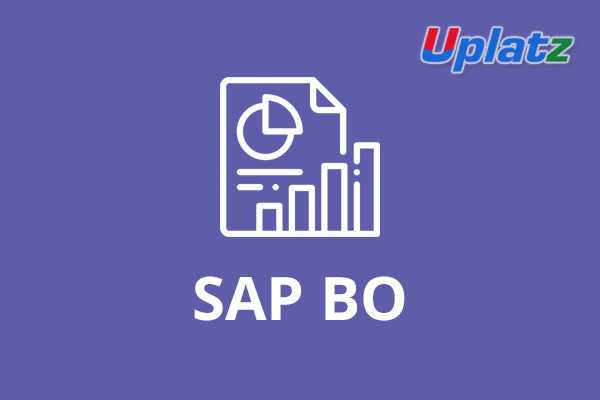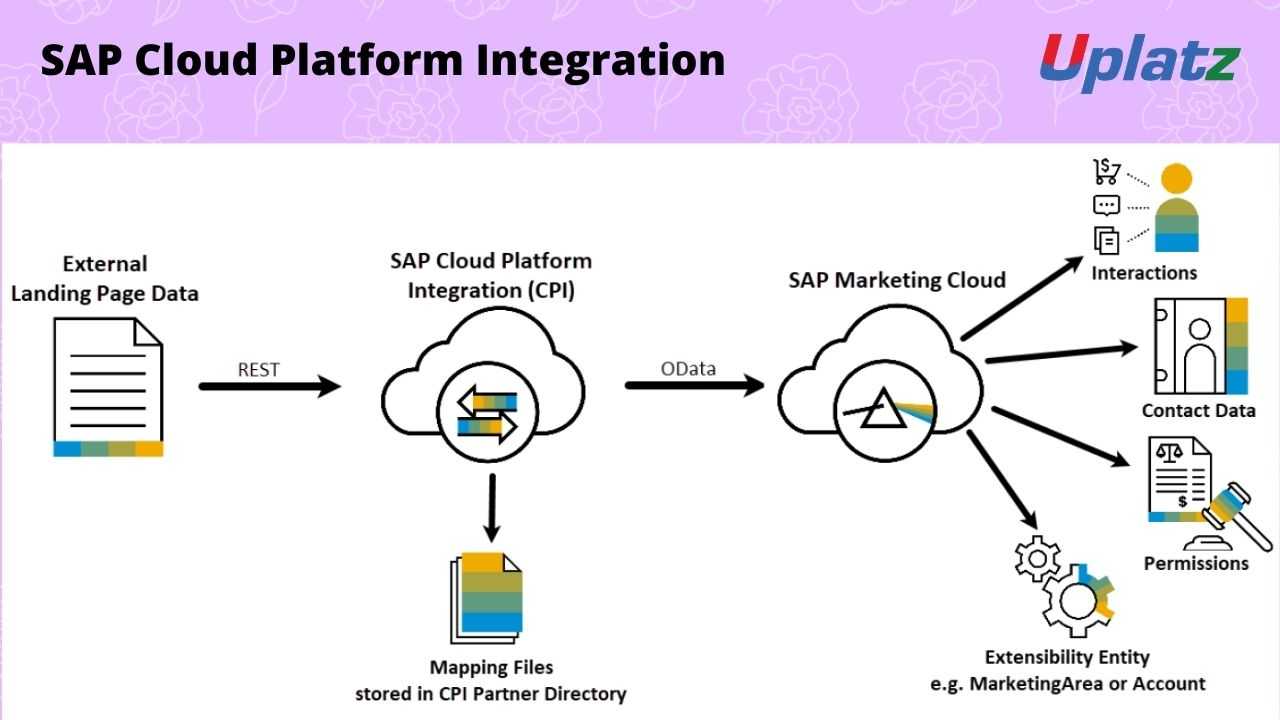SAP Basis
Learn about system installation and Configuration, Load balancing on servers, Performance management of different components.Preview SAP Basis course
View Course Curriculum Price Match Guarantee Full Lifetime Access Access on any Device Technical Support Secure Checkout Course Completion Certificate 26% Started a new career
BUY THIS COURSE (GBP 29)
26% Started a new career
BUY THIS COURSE (GBP 29)
-
 32% Got a pay increase and promotion
32% Got a pay increase and promotion
Students also bought -
-

- SAP Asset Accounting (basic to advanced)
- 4 Hours
- GBP 29
- 62 Learners
-

- SAP BO (BusinessObjects Business Intelligence)
- 27 Hours
- GBP 29
- 694 Learners
-

- SAP CPI (basic to advanced)
- 30 Hours
- GBP 29
- 108 Learners

SAP Basis refers to the administration of SAP system that includes activities like installation and configuration, load balancing, and performance of SAP applications running on Java stack and SAP ABAP. This includes the maintenance of different services related to database, operating system, application and web servers in SAP system landscape and stopping and starting the system.
SAP Basis is a set of middleware programs and tools from SAP SE, the German company specializing in enterprise software solutions. It provides the underlying infrastructure and technical support for various SAP applications, systems, and databases. SAP Basis is the foundational layer of technical infrastructure that supports the operation and management of SAP systems and applications. Basis administrators play a critical role in ensuring the reliability, performance, and security of SAP landscapes, enabling organizations to leverage SAP technology to streamline business processes and drive digital transformation.
The key responsibilities of SAP Basis Administrator are System installation and Configuration, Load balancing on servers, Performance management of different components, Managing interfaces and integration with servers, Managing servers and different services.
With the help of SAP Basis, different SAP modules like Finance Accounting, Production Planning, Sales and Distribution, SAP EWM and other modules can integrate and communicate with each other. SAP Basis supports the installation and configuration of SAP applications on different operating systems like Windows, Unix, AS/400, etc. and different databases like SQL Server, Oracle, IBM DB2 for back end database.
Key functionality of SAP Basis includes:
1) System Administration: SAP Basis administrators are responsible for managing SAP systems, including installation, configuration, and maintenance tasks. This involves setting up system landscapes, managing servers and instances, and monitoring system performance.
2) User Management: Basis administrators handle user management tasks such as creating user accounts, assigning roles and authorizations, and managing user access to SAP systems and applications.
3) System Monitoring and Performance Tuning: Basis administrators monitor the health and performance of SAP systems using various monitoring tools and techniques. They analyze system metrics, diagnose performance issues, and implement optimizations to ensure optimal system performance and availability.
4) System Upgrades and Patch Management: Basis administrators plan and execute system upgrades, updates, and patch installations to keep SAP systems up-to-date with the latest software releases and security patches. This involves testing and validating upgrades in development environments before deploying them to production systems.
5) Backup and Recovery: Basis administrators implement backup and recovery strategies to protect SAP system data from loss or corruption. They schedule and perform regular backups of system databases and configuration files, and they develop and test disaster recovery plans to ensure business continuity in case of system failures or data loss.
6) Transport Management: Basis administrators manage the transport landscape for moving changes and customizations between SAP systems. They use transport management tools to package and transport development objects, such as programs, configurations, and data, across different system environments (e.g., development, quality assurance, production).
7) Security and Authorizations: Basis administrators enforce security policies and controls to protect SAP systems and data from unauthorized access and misuse. They configure user authentication methods, implement role-based access controls, and monitor user activities to ensure compliance with security standards and regulations.
8) Interface and Integration Management: Basis administrators oversee the integration of SAP systems with external applications, databases, and third-party systems. They configure and maintain communication interfaces, such as RFC (Remote Function Call), IDoc (Intermediate Document), and web services, to enable seamless data exchange and interoperability between systems.
Uplatz provides this comprehensive SAP Basis training covering all topics of SAP Basis focusing on installation, configuration, administration, and management of SAP systems in a holistic manner. This SAP Basis training will help you become a successful SAP Basis Consultant.
Course/Topic - SAP Basis - all lectures
-
In this lecture session of SAP Basis we talk about what is SAP and basic usage of SAP.
-
In this video session we learn what is SAP Basis and cover brief information about SAP Basis.
-
In this lecture session we talk about what is SAP Basis and cover all fundamentals of SAP Basis.
-
In this video session we learn about the Types of Basis tasks and roles within SAP administration.
-
In this video session we talk about Client Administration and learn how to create Client Administration in SAP.
-
In this video session we talk about how to create, copy and delete clients in client administration and cover all techniques.
-
In this lecture session we learn how to download and install SAP software in your system.
-
In this lecture session we learn about user administration and cover all types of user administration in SAP.
-
In this lecture session we learn about SAP NetWeaver and cover SAP Easy Access.
-
In this lecture session we learn how we maintain data and cover all the best techniques for maintaining the data.
-
In this video session we learn about request numbers and also cover how we deal with request numbers in SAP.
-
In this lecture session of SAP Basic we talk about how to find objects and also cover the missing objects in the SAP.
-
In this video lecture session we learn about SAP menus and different types of SAP menus.
-
In this video session we talk about SAP notification and also cover the basic notifications in SAP.
-
In this session we talk about system id and system number in SAP and also cover the basics of system numbers.
-
In this session we talk about post installation actions for transport organizers and basic functionality of SAP.
-
In this lecture session we learn about user maintenance in the initial screen and also cover basic functionality of user maintenance.
-
In this session we learn how to save passwords in SAP login and also cover restrictions in SAP.
-
In this video session we talk about client import and export and also cover why we need client import and export.
-
In this video session we talk about import queue in the SAP system and also cover basic functionality of import in SAP.
-
In this lecture session we talk about SAP ECC 6.0 Installation as an OS installation in SAP.
-
In this lecture, we talk about SAP ECC 6.1 Installation as an OS installation in SAP.
-
In this lecture session of SAP Basis we talk about SAP kernel upgrades and also cover every upgrade in brief.
-
In this lecture session we learn about how to install the distributed selection in SAP and also briefly cover the test server.
-
In this lecture session we talk about SAP software, how to login in SAP software and also cover all the techniques of SAP software.
-
In this session we learn about Add-on installation tools in SAP and also cover all techniques of Add-on installation.
-
This class explains the Authorization concept in SAP Basis. Authorization refers to the process of controlling access to various functions, transactions, and data within the SAP system.
-
This video explains the Role Deletion process in SAP Basis. Role deletion refers to the process of removing a role assignment from a user account or deleting a role altogether from the system.
-
This session explains the comparisons from from Users, Roles, Profiles, Authorizations in SAP Basis
-
This session focuses on System profile maintenance in SAP Basis. It involves configuring and managing system parameters and settings to optimize system performance, resource utilization, and behavior.
• You will learn how SAP Basis infrastructure works.
• Explore what is sap basis, server sizing, maintaining sap jobs, client administration, etc.
• Learn batch session management, database monitoring and server profile management, etc.
• Helps you to become professional SAP Basis Consultant of SAP System Administrator which includes activities like installation and configuration, load balancing, and performance analysis of SAP applications running on Java stack and SAP ABAP.
The SAP Basis Certification ensures you know planning, production and measurement techniques needed to stand out from the competition.
SAP Basis is the technical foundation that enables SAP applications to function. It consists of middleware programs and tools that support the interoperability and portability of SAP applications across systems and databases.
The SAP Basis Administrator is responsible for the management of the SAP environment. The SAP Basis Administrator responsibilities include configuring, monitoring, tuning, and troubleshooting the SAP technical environment on an ongoing basis as well as scheduling and executing the SAP transport system.
SAP Basis is the core technical components of the SAP System. It has to do with the SAP Netweaver/ABAP Application Server monitoring and Administration. It includes installing SAP Systems, setting up Servers/Server Instances, creating System Users Management, Memory Management, and Underlying Database Management.
SAP Certification is an online and onsite program that enables your organization to keep pace with the latest SAP technology advances. With this program, certification courses and exams can be accessed on-demand for maximum flexibility and convenience. Exams can also be taken onsite.
Uplatz online training guarantees the participants to successfully go through the SAP Basis Certification provided by Uplatz. Uplatz provides appropriate teaching and expertise training to equip the participants for implementing the learnt concepts in an organization.
Course Completion Certificate will be awarded by Uplatz upon successful completion of the SAP Basis online course.
The SAP Basis draws an average salary of $111,000 per year depending on their knowledge and hands-on experience.
The role of SAP BASIS administrator is to perform user administration, authorization and management of all databases in the organization. This stream is all about professionals working with the installation, configuration, updating, patching, migration and troubleshooting of technical problems on the SAP system.
SAP Basis will transition to an SRE-centric environment over the next ten years. That is the future of SAP, and it's going to be a really exciting place to be.
Note that salaries are generally higher at large companies rather than small ones. Your salary will also differ based on the market you work in.
SAP Basis Junior.
SAP Basis Administrator.
SAP BASIS Consultant.
1) How would you define BASIS R/3
Basis is primarily a collection of R/3 system programs which present the user with an interface. By utilizing this interface the user can initiate the ABAP/4 programs. This is like an operating system for R/3 it sits between the ABAP/4 code and the computer's operating system.
2) How can user maintain roles in SAP systems?
In order to maintain the roles in the SAP system, user can use transaction code — PFCG
3) Distinguish between Support package, kernel and SAP note?
- SAP Note: is an error in a single transaction or program and this is removed by implementing a SAP note.
- Kernel: Kernel encompasses the executable files (.EXE) like other applications and when a Kernel is performed using a new version of the EXE file replaces the older versions.
- Support Package: SAP support packages is a bunch of corrections, this can be utilized by applying the transaction SPAM
4) Explain client administration in SAP systems?
For multiple login on single instance, a client is used in SAP system. User can create multiple clients on a single instance. Client administration also provides data security in which, one user with one client cannot see the data of the other user with another client.
5) Can we get a list of the users with development access on a particular system?
Yes. Table DEVACCESS will show the required details.
6) What is Tcode for displaying and deleting the locked objects?
Transaction code SM12 is used Display and Delete locks objects
7) How to find out the dialog response time?
Please use Tcode rz20 in order to find dialog response time
8) What is the use of t-code SCC3 - Client Copy & Transport Log Analysis?
Transaction code SCC3 can be utilized for monitoring the process of client copy which is functioning in the background or validate the log of front-end process.
9) How can the user transfer the package from one client to another client made by ABAPER’s?
- User logs into the client where he wants to transport ABAP package.
- Now use transaction 'scc1'
- Then transport the request which entails the ABAP package
10) Define SGEN in SAP Basis?
SGEN is an ABAP compilation. User can utilize the transaction SGEN in order to generate ABAP loads for a number of programs, classes, function groups, and so on, also for Business Server Page applications (BSP applications).









